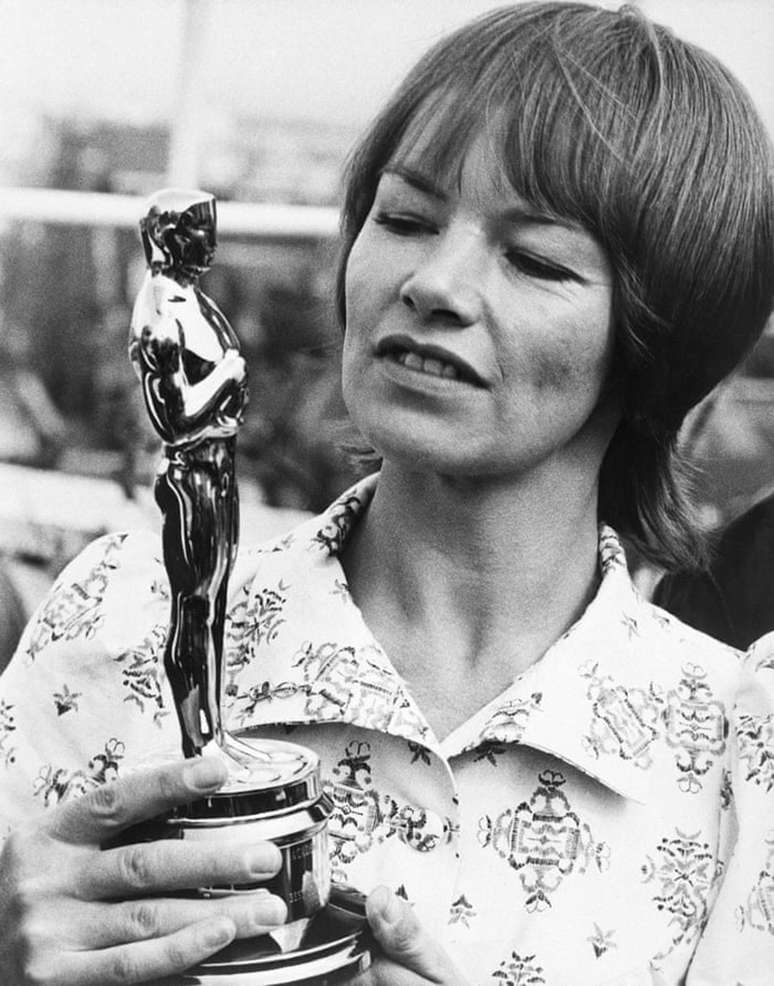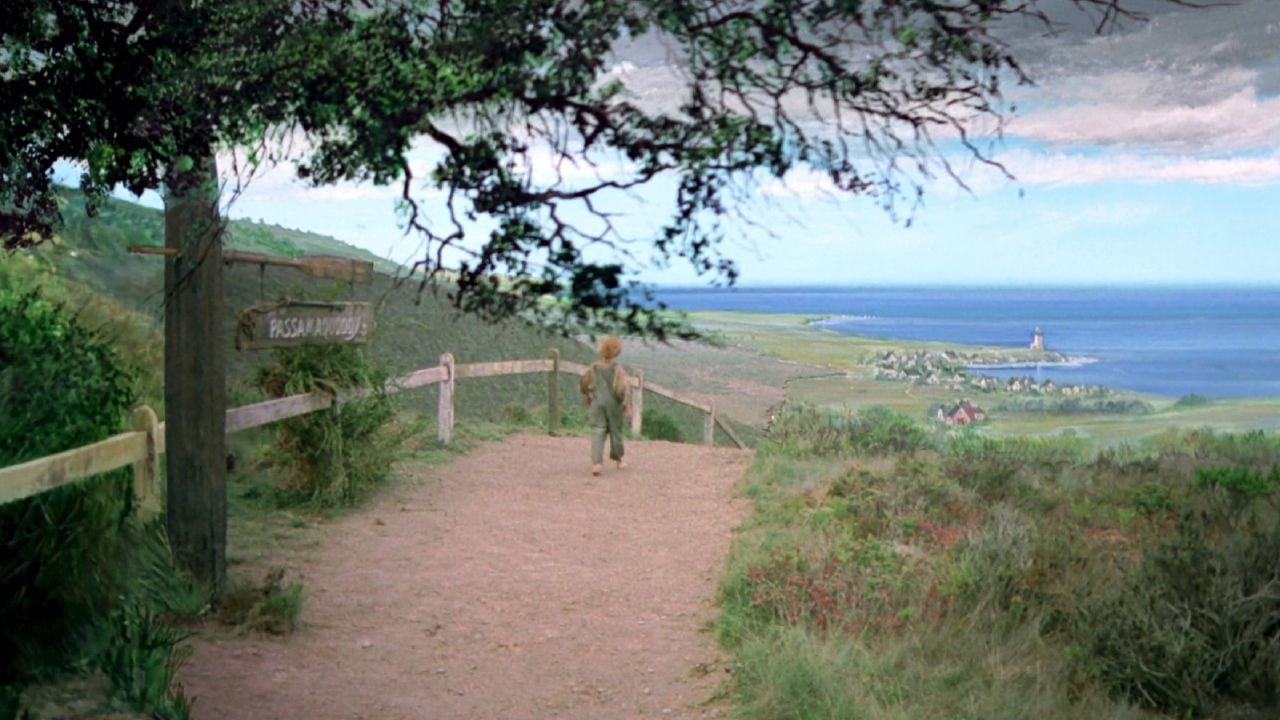British actress Glenda Jackson, winner of two Academy Awards, died on Thursday (15/6) in London, aged 87. Throughout her career, she has also attracted attention for entering politics and serving as a Member of Parliament for the United Kingdom. The news of her death was confirmed by her agent, Lionel Larner, who revealed that her death resulted from a short illness.
Jackson was known for her roles in such classics as ‘Women in Love’ (1969) and ‘A Touch of Class’ (1973), which earned her the Academy Award in the Best Actress category. But, throughout her career, she has marked the screens with many other famous works, including ‘Damn Sunday’ (1971) and ‘Mary Stuart, Queen of Scots’ (1971).
Successful in theaters, the actress also conquered television as Queen Elizabeth I in the series “Elizabeth R”, for which she won two Emmys for Best Actress. Already in the theatre, she was acclaimed for her portrayal of her in the plays ‘Who’s Afraid of Virginia Woolf?’, ‘Hedda Gabler’ and ‘Strange Interlude’.
Start of career
Born in the city of Birkenhead, England, Glenda May Jackson began studying performing arts at the Royal Academy of Dramatic Art in 1954, aged 18. She made her acting debut in British playwright Terence Rattigan’s comedy Separate Tables. And she took the first steps in her career with small appearances in films, such as the classic “The Cry of an Idol” (1954), by Lindsay Anderson.
After more than 10 years on stage, she became a member of the Royal Shakespeare Company, the UK’s most established theater company. During this period, she starred in the comedy “The Pursuit and Murder of Jean-Paul Marat Performed by the Insane at Charenton Asylum under the Direction of the Marquis de Sade” (1967), shortened to “Marat / Sade”. Acclaimed by audiences, the play was adapted for film, under the direction of Peter Brook, launching the actress in her first major screen role.
He then starred in the twisted novel “Negatives” (1968), by Peter Medak, and made brief appearances in television series. Until, in 1969, she established herself as one of the leading names in cinema—and the great sex symbol of the era.
sex symbol
The feature film “Women in Love” (1969), directed by Ken Russel, was important in portraying the sexual revolution and women’s freedom in a still strongly conservative England. He surprised the audience with the character of her, Gudrun Brangwen, a woman with a complex, intelligent and emotional personality.
Before that, most actresses who became sex symbols were passive and subject to the will of men. In the feature film, it was her character who gave the orders. Although the film was written and directed by men, the production was looking for an actress capable of playing a 1920s woman who was ahead of her time.
With her Best Actress Oscar win, it was clear Jackson was the right choice for the role.
The following year she continued her partnership with the director in the feature film “Delirium of Love” (1970), where she returned to give something to talk about, in the role of the nymphomaniac wife of a tortured homosexual – none other than the famous Russian composer Tchaikovsky, played by Richard Chamberlain.
prize collection
The year 1971 was quite remarkable in his career. She proved her talents on television with Queen Elizabeth I’s version of her in the series ‘Elizabeth R’ (1971), produced by the BBC, winning two Emmy Awards for her portrayal of her. And she also repeated her role in the film “Mary Stuart, Queen of Scots” (1971).
But it was the role in the film “Domingo Maldito,” by director John Schlesinger, that still sparked comments. In the film, she participated in a love triangle involving two bisexual men. The production earned him a BAFTA Award and another Academy Award nomination.
Soon after, the actress embarked on another major production, the romantic comedy “A Touch of Class” (1973), starring actor George Segal. Maintaining her appearance as an empowered woman, she received widespread praise for her portrayal of her and won her second Best Actress Academy Award.
outstanding roles
The actress has been hailed as one of the most popular stars at the British box office. And he outdid himself in 1975, when he starred in three of his most famous films. Ever daring, she flirted with lesbianism in Jean Genet’s comedy adaptation “As Maids,” turned infidelity into creativity in “The Englishwoman Romantica,” directed by Joseph Losey, and earned her fourth nomination for the Oscar with another stage adaptation, ” Hedda”, based on Ibsen’s play about a Nordic femme fatale.
It also gave life to the legendary Sarah Bernhardt, the most famous stage actress of all time, in ‘The Incredible Sarah’ (1976).
Then, suddenly, he began to prefer acting in comedies, such as “A Touch of Humor” (1979), “Mrs. McMichael’s Students” (1979), “Body and Health Politics” (1980) and two partnerships with the American the comedian Walter Matthau, “Um Viúvo Trapalhão” (1978) and “O Espião Trapalhão” (1980).
After spending much of the 1980s in the theatre, she returned to the screen in a new comedy, “Beyond Therapy” (1987), by Robert Altman, and in two new collaborations with Ken Russell: “Salome’s Last Dance” (1988) . ), an adaptation of Oscar Wilde’s play as vengeful Herodias, and “The Awakening of a Woman in Love” (1989), a drama based on the play by DH Lawrence.
political career
In 1992, the actress surprised everyone by trading her artistic career for a chance to become a politician. After being elected by the Labor Party as a member of the British Parliament, Jackson drastically stopped her activities as an actress.
When her party took over the British government in 1997, she was appointed undersecretary for transport. But years later, disgusted at not being able to run for mayor of London, she declared she would never run again, ending her political life in 2015.
winning return
Shortly after leaving office, she made an unexpected comeback as an actress and even won a BFTA and International Emmy for the BBC television film ‘Elizabeth Is Missing’, in which she played a woman with dementia, struggling to solve the disappearance of a friend.
He also starred in the drama ‘O Domingo das Mães’, directed by Eva Husson, released at the Cannes Film Festival in 2021 – and one of the few works where Jackson had the opportunity to work with a female director.
Before she died, she completed the as yet unreleased “The Great Escaper,” in which she was reunited with Michael Caine, her partner in “The Englishwoman Romantica.” Directed by Oliver Parker (“Johnny English Returns”), her latest film has no release date.
Source: Terra
I am Amanda Gans, a motivated and ambitious professional in the news writing industry. With over five years of experience in this field, I have developed an eye for detail and an ability to craft stories that captivate readers. I currently write for Gossipify, where I specialize in beauty & celebrities news. My passion lies with exploring the world of beauty through writing, interviewing experts and developing articles that are both informative and entertaining.









